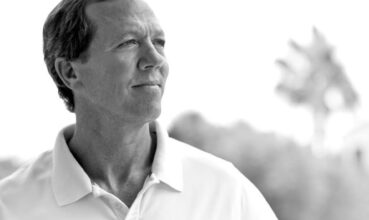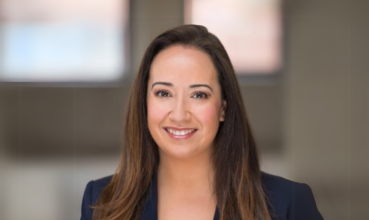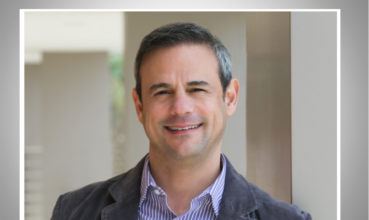In an era when environmental consciousness often feels like a marketing exercise, Rodney Mendez and Summer House are proving that authentic ecological development can command a premium in th...
Max Shapiro on Luxury Real Estate Leadership Through Listening




“Listening is the most important thing. High-net-worth clients typically know what they want and prefer to express those desires directly. If you listen attentively, you’ll go far,” says Max Shapiro, Partner at Westside Estate Agency (WEA), reflecting on his approach to the ultra-luxury real estate market.
A Legacy of Real Estate Excellence
For Shapiro, real estate wasn’t initially the plan, but it was in his blood. “My father has been doing it since the seventies, and whether I knew it or not, I was absorbing real estate information while growing up,” he explains.
After a brief college stint of just one semester, Shapiro’s father gave him an ultimatum: if he was leaving college, he needed a job. Starting as a personal assistant for an actor, Shapiro soon realized he needed a more sustainable career path. With his father’s decades of experience in the industry, real estate became the natural choice.
“I got my real estate license knowing that being born and raised in Los Angeles, I had a built-in network and better yet, I had a built-in mentor in my father,” Shapiro recalls. “Things hit the ground running quickly, and my father opened the door for me, but I decided to walk through that door in my own way.”
Despite the family connection, Shapiro earned his position through years of dedicated work. “Funny enough, you know we live in a world where people easily recognize nepotism. But it took me nineteen years to become partner at Westside Estate Agency. It wasn’t like he was throwing me into a partnership role out of the gates. He waited till I was thirty-nine years old, and nineteen years into the office.”
The Westside Estate Agency Approach
Westside Estate Agency was founded over 25 years ago by Shapiro’s father, Stephen Shapiro, and Kurt Rappaport, who Shapiro describes as “the number one agent in the world, maybe definitely in Los Angeles.”
The company was established with a clear vision: “a boutique agency that provides Service First real estate advisors, no fluff, not trying to sell anything else, just sell and deal with high-net-worth individuals,” Shapiro explains. “That’s what Westside Estate Agency has done. Has dealt with high-net-worth individuals, using discretion, expertise.”
The Art of Serving Ultra-Luxury Clients
Working with discerning, high-net-worth clients requires a specific approach. Shapiro emphasizes several key principles:
Listening First
“What’s most important is listening. High-net-worth clients typically know what they want and prefer to express those desires directly. If you listen attentively, you’ll go far.”
Patience
“Patience is also essential. Many agents try to push deals. This is more about learning to steer your client in the right way only if they ask your advice because everybody has different tastes.”
Discretion
“Discretion is crucial. Today, everything is broadcasted on social media and television, but many of these clients don’t want their business made public. It’s important for them to trust you will not broadcast their activities,” Shapiro says.
Personal Service
“When you create teams, communication lines can cross and important details may be missed. Personal service consistently delivers the best client experience. When you personally return phone calls, show properties, and provide feedback, you’re honoring the relationship. High-end clientele expect the professional they hired to provide that personal service.”
Strategic Marketing in Ultra-Luxury Real Estate
When it comes to marketing ultra-luxury properties, Shapiro takes a case-by-case approach. His process begins with thorough research: “Before any listing appointment, you research the property. You check public records for ownership duration and existing liens, then analyze comparable properties.”
From there, he creates a foundation for discussion, but emphasizes the importance of listening to the client’s specific needs and motivations. “People generally know what they want before you arrive. Your job is to listen first, then advise.”
Perhaps most importantly, Shapiro isn’t afraid to walk away from overpriced listings. “Many homeowners want to sell properties for $100 million when they’re only worth $50 million. Sometimes you must walk away because you’ll invest significant energy, time, and money on something that won’t sell.”
The Changing Landscape of Off-Market Deals
The luxury real estate market has seen significant changes in how properties are marketed and sold. Shapiro notes that the “clear cooperation” policy has impacted how off-market properties can be marketed.
“For pocket listings in the $10-15 million and above range, you might have clients who prefer privacy regarding their sale, perhaps due to a high-profile divorce they want to keep private,” Shapiro explains.
However, he believes that for most properties, especially those under $10 million, broad marketing is usually the best approach: “When selling a four million dollar house, your potential buyer pool is much larger than for a 30 million dollar property. It’s in your best interest to market your house as widely as possible.”
The Malibu Fire Aftermath: A Market in Flux
The recent fires in Malibu have dramatically impacted the local real estate market. Shapiro provides a nuanced view of the situation:
“Many homeowners have turned to rentals while contemplating whether to rebuild. They’re realizing that rebuilding might take five years, and the surrounding area could take a decade to recover.”
This uncertainty has created opportunities for developers with resources and patience, but has also driven many homeowners to relocate: “We’re seeing significant migration to Florida, particularly Miami, or to areas adjacent to Malibu like Santa Monica and Brentwood.”
The result has been significant price increases in neighboring areas: “Houses in Santa Monica are selling for $10 million that would have been valued at $6 million just two years ago. The displacement is dramatically driving up prices in areas near where people lost their homes.”
The Insurance Crisis
Perhaps the most pressing issue facing California’s luxury real estate market is the skyrocketing cost of insurance, particularly in fire-prone areas.
“When purchasing a $6 million house with $130,000 in annual fire insurance premiums, it becomes difficult to justify,” Shapiro notes. “The California FAIR Plan only covers up to $3 million, which is insufficient for luxury properties.”
These costs are directly impacting transactions. Shapiro shares a recent example: “I currently have a client requesting a price reduction to offset increased insurance costs.” In another case, a client abandoned an income property purchase because the $240,000 annual insurance premium made profitability impossible.
Looking to the Future
Shapiro is keeping an eye on three key developments in the industry:
Commission Structures
“I’m interested to see how the recent settlement affects the industry. The standard 5% commission is no longer automatic. Agents now need buyers to sign agreements before property showings, and recent transactions have involved reduced commissions.”
Interest Rates
“Interest rates are hovering around six and a half percent. We shouldn’t expect a return to 3-4% rates.” His advice to buyers: “If you’re ready to buy, proceed now. Waiting five years could mean a 20% price increase, and you can always refinance if rates improve.”
Artificial Intelligence
While acknowledging AI’s rapid advancement in real estate, Shapiro maintains that human expertise remains essential: “I encounter new AI applications daily. Will agents let artificial intelligence do their work? I hope not, because this is fundamentally a service industry.”
For Shapiro, technology should enhance rather than replace personal service: “I welcome AI applications that create seamless interactions and reduce friction, but ultimately, we are service professionals with a responsibility to deliver.”
Through market fluctuations, technological changes, and natural disasters, Max Shapiro’s approach to luxury real estate remains grounded in the fundamentals his father instilled in him: “Always put the client first, don’t lie, be thorough, have patience and never chase a deal, earn people’s trust… I don’t like gimmicks, I don’t deal with ego, it’s just about knowledge of the city and the product and doing things with integrity.”
Similar Articles
Explore similar articles from Our Team of Experts.




In the picturesque coastal enclave of Carmel and Pebble Beach, California, Tim Allen has established himself as the preeminent figure in luxury real estate over a remarkable 40-year career. ...


In New York City’s challenging housing landscape, one organization stands out with a clear vision: transforming lives through affordable homeownership. Since July 2024, Sabrina Lippman...


French-born entrepreneur Dan Malka, who founded Malka Realty after a successful career transition from tech, has witnessed firsthand the dramatic shifts in Los Angeles’ luxury real est...


When the Manoucheri brothers decided to expand their family’s real estate empire from California to Florida, they executed a carefully planned evolution of their multi-generational suc...



